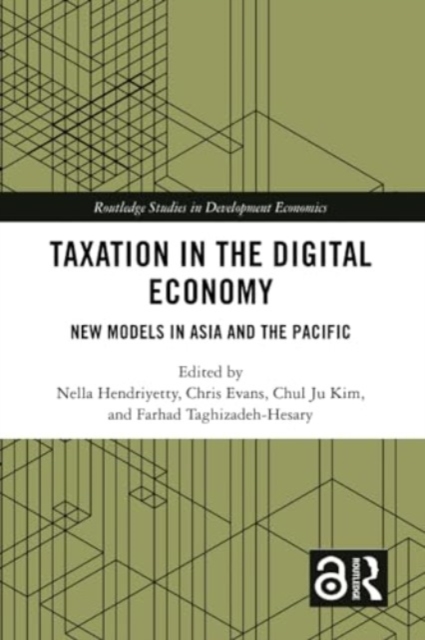
Taxation in the Digital Economy : New Models in Asia and the Pacific Paperback / softback
Edited by Nella Hendriyetty, Chris Evans, Chul Ju Kim, Farhad (Tokai University, Japan) Taghizadeh-Hesary
Part of the Routledge Studies in Development Economics series
Paperback / softback
Description
A robust and efficient tax administration in a modern tax system requires effective tax policies and legislation.
Policy frameworks should cover all aspects of tax administration and include the essential processes of capturing, processing, analyzing, and responding to information provided by taxpayers and others concerning taxpayers’ affairs.
By far the greatest challenges facing tax administrations in all countries are those posed by the continuing developments in the digital economy.
Whereas societies are grappling to come to terms with the transitions from the third industrial or digital revolutions, revenue authorities grapple with the consequences for the sustainability of their tax bases and the efficient administration and collection of taxes.
This book presents a critical review of the status of tax systems in Asia and the Pacific in the era of the digital economy.
The book suggests how countries can maximize their domestic resource mobilization when confronted by the challenges that digitalization inevitably produces, as well as how they can best harness or take advantage of aspects of digitalization to serve their own needs.
The full implications of the COVID-19 crisis are still too uncertain to predict, but it is clear that the crisis will accelerate the trend towards digitalization and also increase pressures on public finances.
This, in turn, may shape the preference for, and the nature of, both multilateral and unilateral responses to the tax challenges posed by digitalization and the need to address them. This book will be a timely reference for those researching on taxation in digital economy and for policy makers.
The Open Access version of this book, available at www .taylorfrancis .com, has been made available under a Creative Commons Attribution-Non-Commercial-No Derivatives 4.0 license.
Information
-
Out of stock
- Format:Paperback / softback
- Pages:328 pages, 24 Tables, black and white; 59 Line drawings, black and white; 59 Illustrations, black an
- Publisher:Taylor & Francis Ltd
- Publication Date:29/01/2024
- Category:
- ISBN:9781032051048
Information
-
Out of stock
- Format:Paperback / softback
- Pages:328 pages, 24 Tables, black and white; 59 Line drawings, black and white; 59 Illustrations, black an
- Publisher:Taylor & Francis Ltd
- Publication Date:29/01/2024
- Category:
- ISBN:9781032051048










